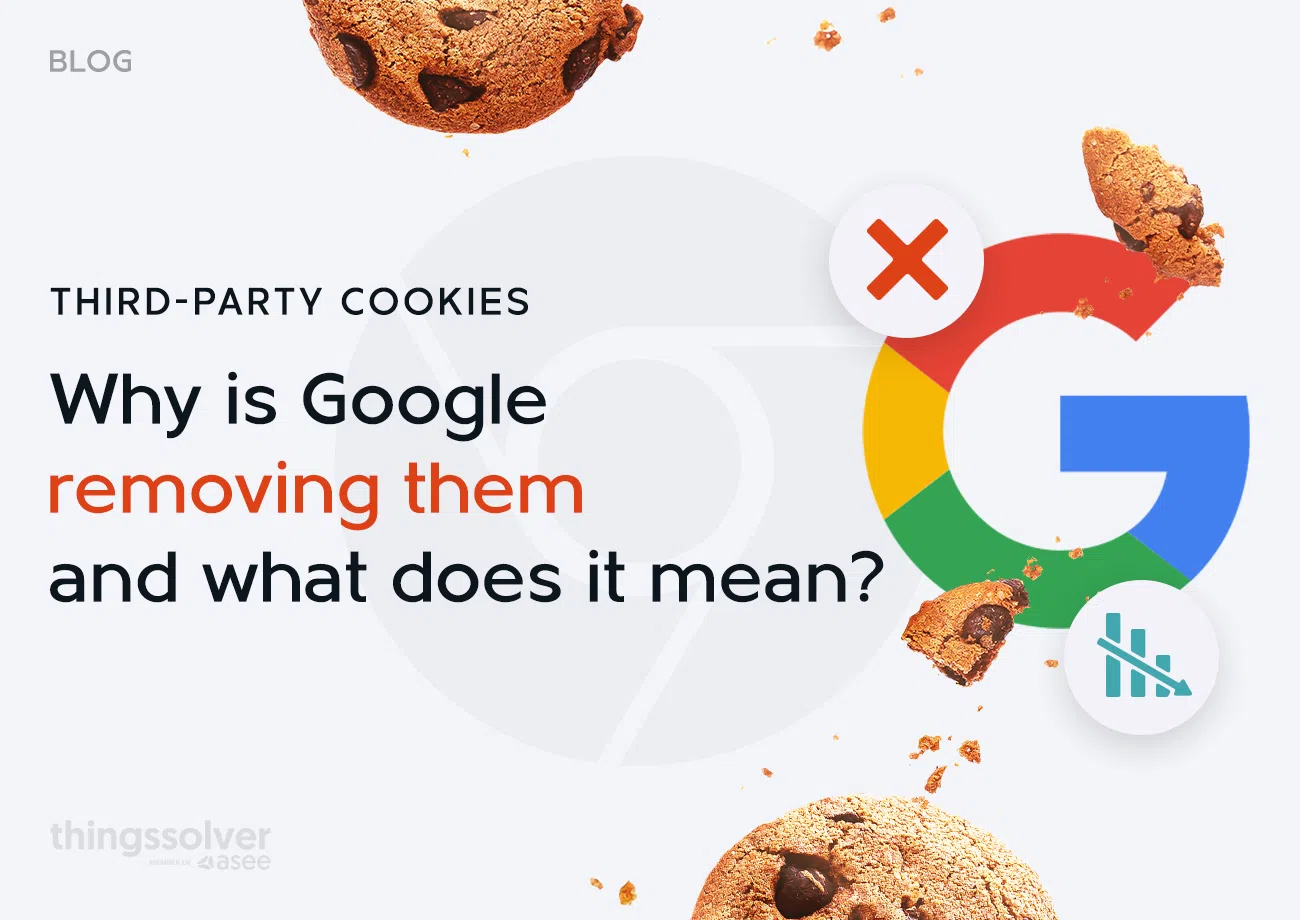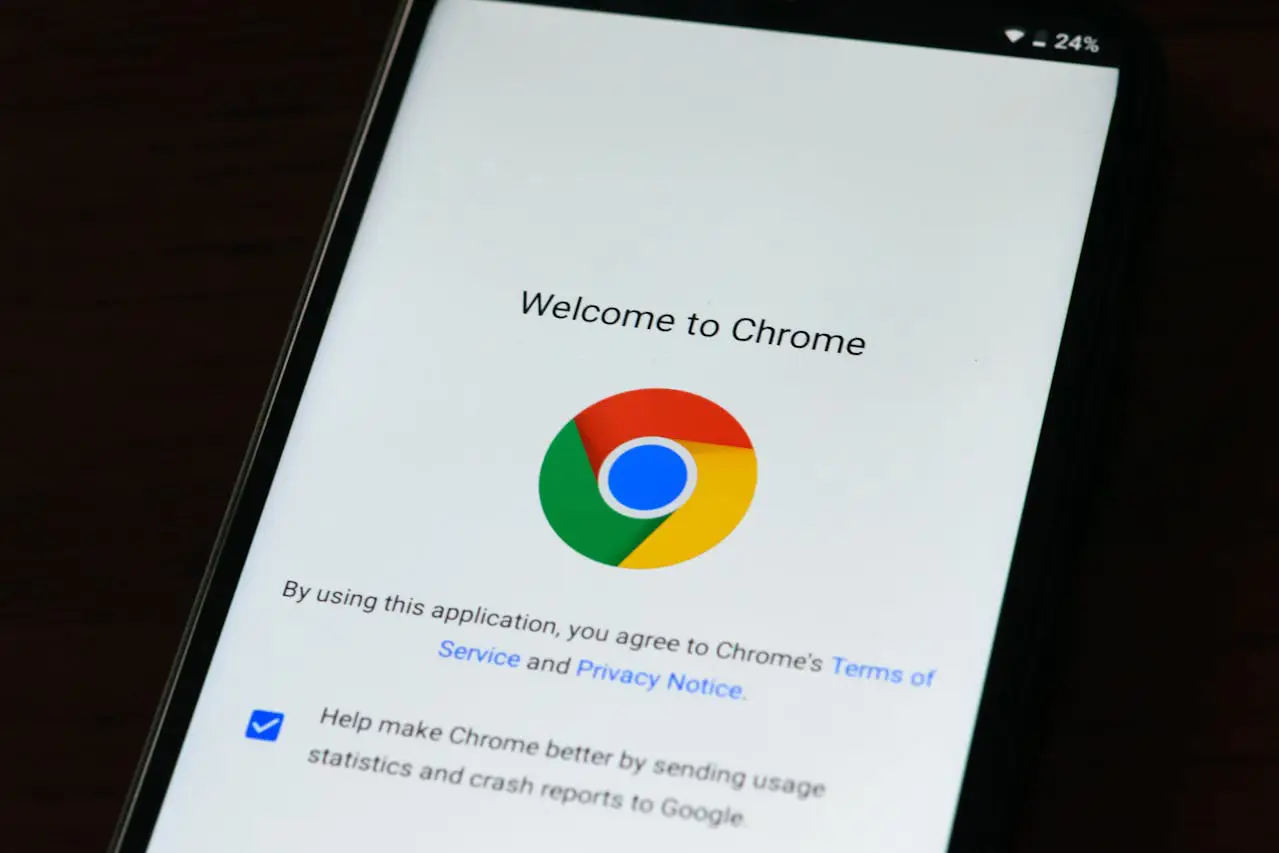What is conversational banking?
The financial industry is undergoing a digital revolution, with traditional methods of banking being replaced by faster, more efficient, and…
Read more15. 04. 2024.

For more than 2 decades, third-party cookies have been an essential tool in the digital advertising industry.
Businesses have used them primarily for tracking users’ online activities so they can better target their ads and personalize the content for them as much as possible. But as you may already know, this is changing.
At the beginning of January, Google started testing new privacy features and stopped the use of third-party cookies in Chrome for 1% of users. By doing this, Google joined a growing list of web browsers discarding this notorious tracking technology.
In other words, Google is on a mission to end third-party cookies for all Chrome users by the end of 2024.
Considering how Chrome holds more than 60% of the global web browser market share, it’s clear that many businesses will be affected.
Although the end of third-party cookie doesn’t necessarily mean the end of tracking, let’s dive deeper into what this means for businesses and what you can do to prepare for this.
Table of Contents
Before we go on, let’s start by defining third-party cookies.
As you probably know, cookies represent small text files that are placed on a user’s browser when visiting a website. We can talk about two types of cookies:
Additionally, third-party cookies are one of many website tracking technologies that you can use on your website to run analytics solutions, marketing platforms, and social media integrations in addition to online advertising.
If they are so good for you, what’s the problem then?
Third-party cookies aren’t just helping the websites they’re on. They also serve the companies that make those websites and those in the advertising industry.
Third-party cookies are used to gather a huge amount of personal information from people using websites, often without their permission or knowledge. And worse than that, this information is traded, sent, and sold in the digital advertising industry. The information includes things like:
So, the problem doesn’t lie in the fact that third-party cookies collect huge amounts of data. The issues are that:
Advertisers are more than happy to buy these detailed profiles to target their ads directly at their ideal personas. They thrive on knowing the users’ interests, habits, and behavior predictions. Advertisers just want to know their next move and will pay for it if necessary.
Now although personalization lies at the heart of third-party cookies, isn’t there any other way?
And what happens in case of data leaks?

Around four years ago, Google said it would gradually stop supporting third-party cookies in its Chrome browser. They started testing this with things like tracking conversions and personalizing ads by the end of 2020.
This decision is part of Google’s bigger plan called Privacy Sandbox, which they launched in August 2019. This plan aims to make the web more private by creating new rules everyone can follow.
Google’s Privacy Sandbox has a few main goals:
In June 2021, Google decided to delay the end of third-party cookies in Chrome until the end of 2024. This came after a disagreement about what should replace them.
Also, Google isn’t the only one moving away from third-party cookies. Other browsers like Firefox, Brave, and Safari have been blocking them for a while. Even big companies like the New York Times are getting rid of third-party ads.
However, Google’s plan to get rid of third-party cookies in Chrome has upset some people in the ad-tech world. Many worry it could hurt the way things work online, especially for new businesses. They want Google to figure things out before ending third-party cookies.
According to Google, first-party relationships are crucial, and one of the main reasons behind ending third-party cookies. In their own words:
“Developing strong relationships with customers has always been critical for brands to build a successful business, and this becomes even more vital in a privacy-first world. We will continue to support first-party relationships on our ad platforms for partners, in which they have direct connections with their own customers. And we’ll deepen our support for solutions that build on these direct relationships between consumers and the brands and publishers they engage with.”
On the other hand, you’re struggling with tracking and measuring your success, as well as paying for all of it.
For example, customer acquisition costs have been going up, but the value customers bring over their lifetime has been going down. According to a study from SimplicityDX, customer acquisition costs have increased by 222% in the last 8 years.
You are going through this despite having more of your own data than ever before. Wasn’t first-party data supposed to fix everything?
In reality, this looks like this:
If you stop to think about it, many are going through the same. Many are already at a loss.
If businesses keep relying on tools that need third-party cookies, they might lose touch with their customers and their business will suffer.
And as we approach the end of 2024, things won’t get any better.
Getting rid of third-party cookies can affect how you do your marketing. This is especially true for those who heavily rely on targeted ads and user tracking. In addition to what we’ve already mentioned, here’s how ending third-party cookies could impact your business:
Personalized ads depend on data from third-party cookies to match ads with what users are interested in. Without this data, it’s harder to make ads feel personal, which could lead to users paying less attention to them.
As third-party cookies go away, ads might start targeting based on what webpage the users are on, rather than what they have been doing all over the internet. Businesses might need to change their tactics to fit this new way of advertising.
Third-party cookies are often used to see if ads are leading to sales. Without them, it’s harder to know if the ads are doing a good job or if they’re wasting money.
Even though ending third-party cookies is trickier for businesses, it’s also a step toward better privacy for users. Businesses need to be upfront about how they use data and respect users’ privacy to keep them happy.
With third-party cookies out of the picture, businesses will lean more on gathering their own data directly from customers. This might mean asking customers if it’s okay to collect their data in exchange for more personalized experiences.
In the end, while getting rid of third-party cookies brings on many challenges, it’s also a chance for you to rethink how you market to people, focusing more on privacy and finding new ways to reach your audience.
Even with trying new tools, exploring new channels, and testing new strategies, you’re still struggling. And it’s costing you a fortune to get customers who aren’t sticking around as long as you’d like.
With the third-party cookies going away soon, you must be prepared to take things to the next level.
What can you do?
Do a better job of collecting, handling, and using your data. In other words, own your data because this gives you more control and helps you personalize the experience for your customers.
Start by:
Those who have already started doing this will be ready for the end of third-party cookies because they are already using their own data and finding better ways to use it.
If you’re not at that point yet, you can take a less radical step — find trustworthy partners and allies who will help you during this tricky transition period. Partnering with the right team can make all the difference and help you handle this change with confidence. This can ensure that your business remains competitive and resilient in times of evolving digital landscapes.
Ready to make the most of this transition?
Reach out to us at ai@thingsolver.com for expert guidance and support tailored to your business’s unique needs. Together, we can ensure your continued success in a cookie-less world.
The financial industry is undergoing a digital revolution, with traditional methods of banking being replaced by faster, more efficient, and…
Read moreYou’re running a business, constantly looking for ways to cut costs, boost efficiency, and increase revenue. But here’s the harsh…
Read moreAgentic AI will transform industries, but with one important exception — without consolidated data, even the most sophisticated AI systems…
Read more